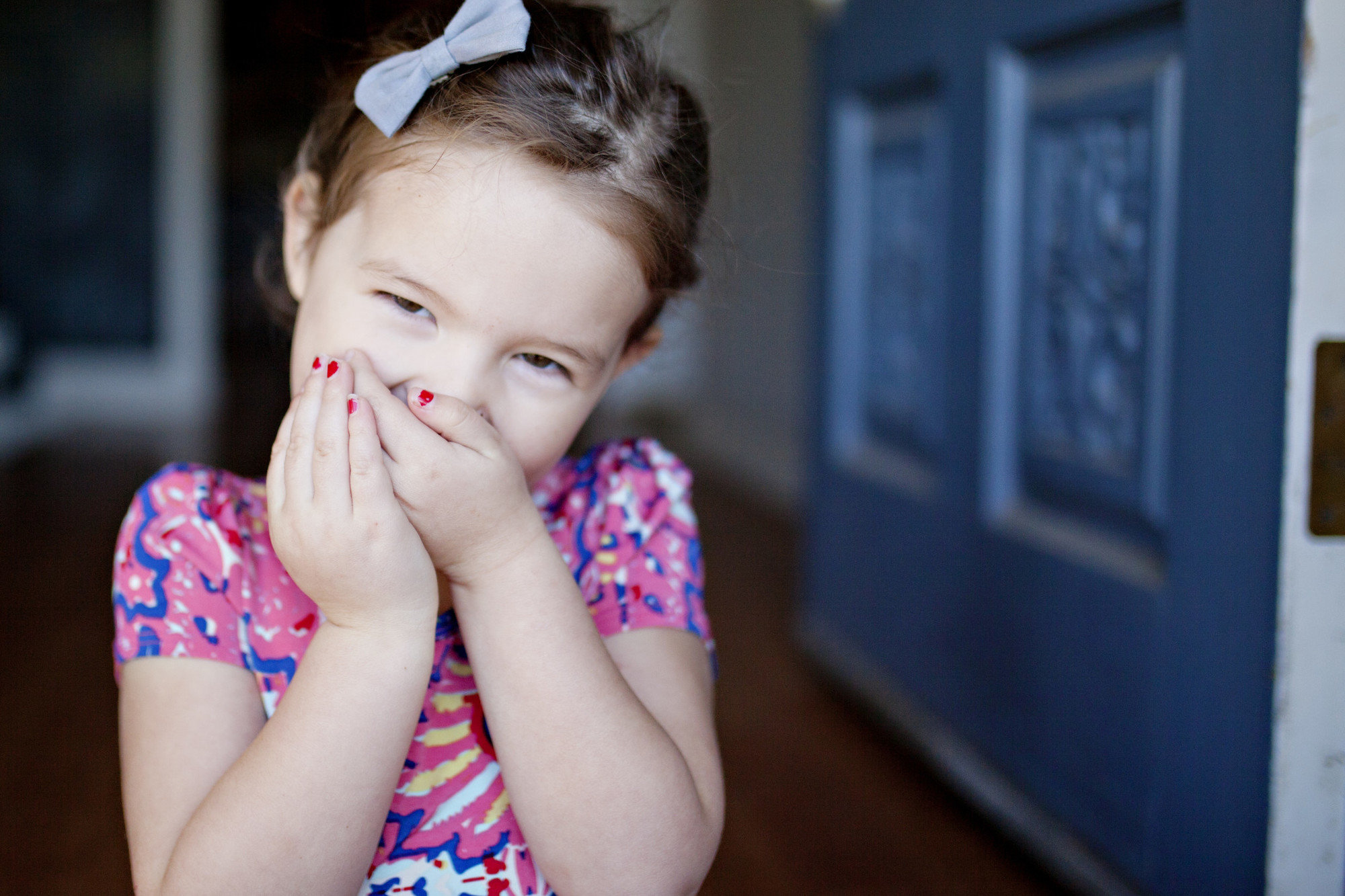
Kids often go through a phase where they fib all the time. But when do harmless little white lies cross over into being a full-blown problem? That was the question that one parent had about a 6-year-old daughter who seems to have a problem with telling lies way too often for her parent's comfort. Is her constant lies a normal phase or should this parent be worried?
Although this parent finds the child's imagination to be impressive, the parent is also worried that it's crossing a line.
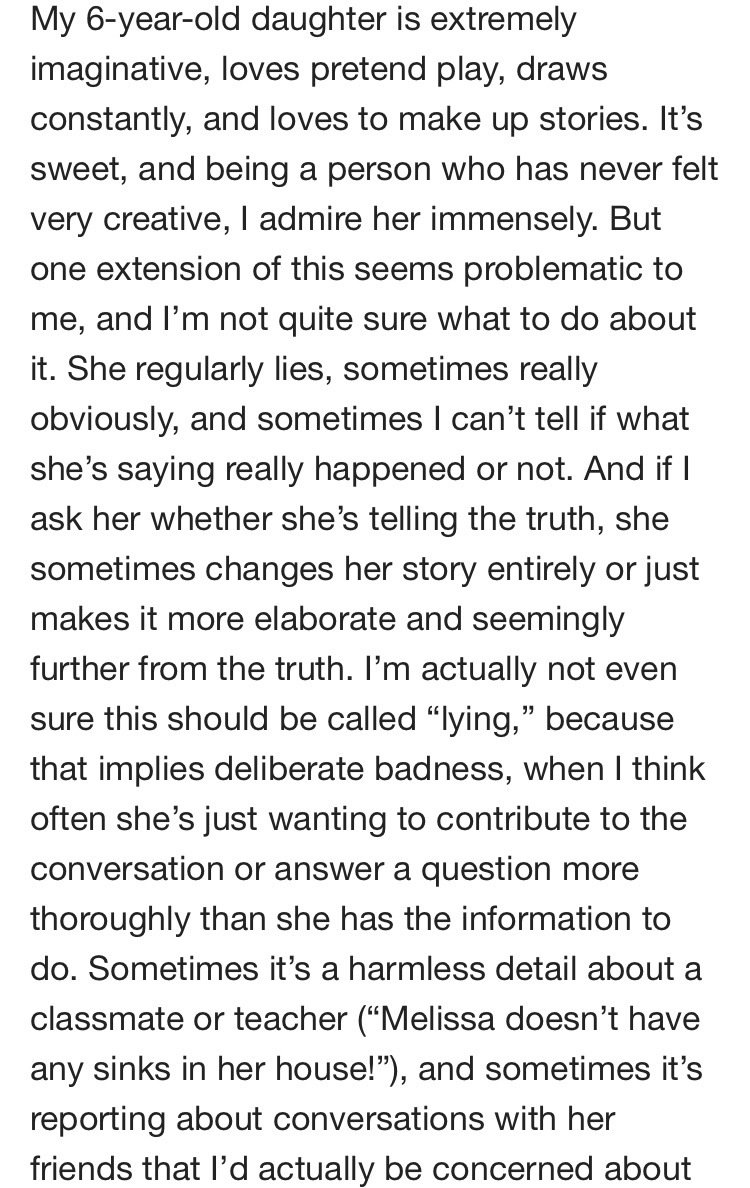
As the anonymous parent explained in a letter written to Slate's Care and Feeding advice column, they have an imaginative, playful, and creative 6-year-old daughter, but she has one bad habit that has become worrisome.
"She regularly lies, sometimes really obviously, and sometimes I can’t tell if what she’s saying really happened or not," her parent wrote. "And if I ask her whether she’s telling the truth, she sometimes changes her story entirely or just makes it more elaborate and seemingly further from the truth."
The parent isn't sure that the lies were an attempt to mislead her parents or misbehave. It might be that the girl just wanted to contribute to the conversation even if she had to make up facts or details about the thing she's talking about.
Although the parent knows that lying is a phase that most kids go through, the parent worries that 6 is too old for this behavior.
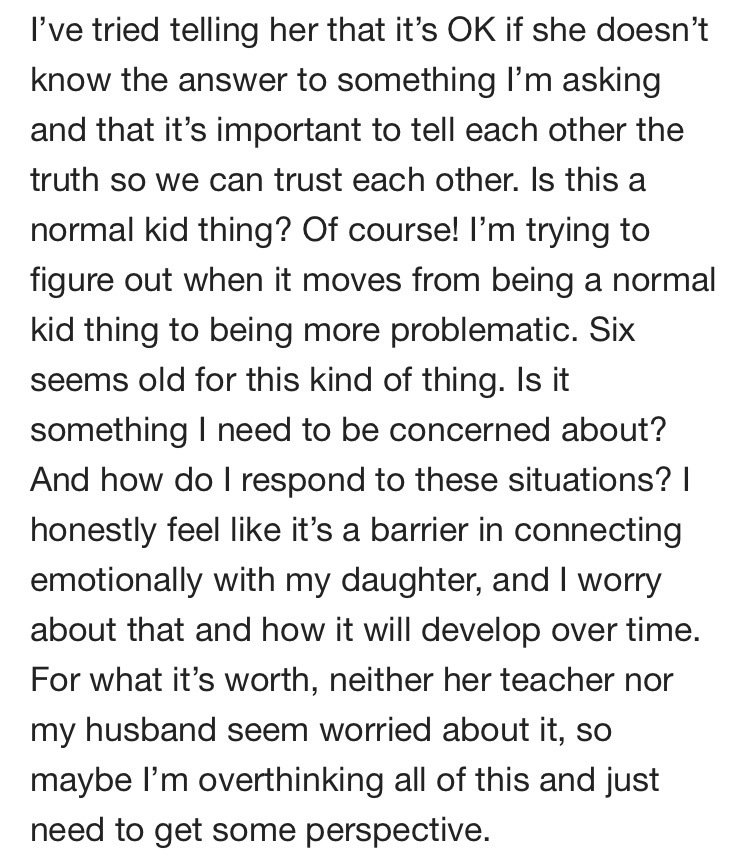
The parent wrote that they've tried having a conversation with their daughter about her lying, but now they are wondering if there is something else going on. "Is this a normal kid thing? Of course! I’m trying to figure out when it moves from being a normal kid thing to being more problematic," the parent wrote. "Is it something I need to be concerned about?"
Some people think the lies are just a phase that the daughter will outgrow.
"Six-year-olds’ perception of reality is often quite different from adults’ perception," one person wrote in the comments. "I have a scrupulously honest child, but even I know that when something she relays sounds odd, it’s best to do some checking before reacting. It’s not that she’s lying but that her six-year-old brain has missed some key details."
And another person advised that the girl channel that energy into a creative project. "I would encourage the little storyteller to write and illustrate those stories/lies while mom makes the distinction between 'creative world, in which anything goes' and 'real world, in which we all should stick to the truth,'" the user wrote. "At six, she may not be able to grasp why telling the truth in the real world is important, but creating a place where she can fictionalize real life all she wants is probably a good way to channel her impulses."
"In my unscientific experience approximately 100 percent of children do this to some degree," another person wrote. "The bigger point is that you can't tell how your child really is by the way the act around their parents or even family. Listen to how other adults talk about your child, that will give you a much better idea of what they are really like."
But other people think it's a serious problem at this age.
"When someone is six, these are stories created to get attention. When she's 40, she'll be what's called a pathological liar," someone argued. "Seriously. She's like 99 percent likely to grow out of it — she's SIX. But people who lie/exaggerate to get attention, and then get that attention? Um. Where's the incentive to stop?"
"The 6-year-old is capable of understanding the difference between making up creative stories and lying. It is up to the parent to point out those differences and help the child understand," another person commented.
"Yes, this is lying. Your child is a liar. What’s more, the great majority of children — and many adults — are shameless, rampant liars[….] Quit it! Suck it up, and call a lie a lie! Your little precious will not be irreparably harmed by mildly implied chastisement," wrote someone else.
However, the advice columnist had other ideas about this pesky "problem."
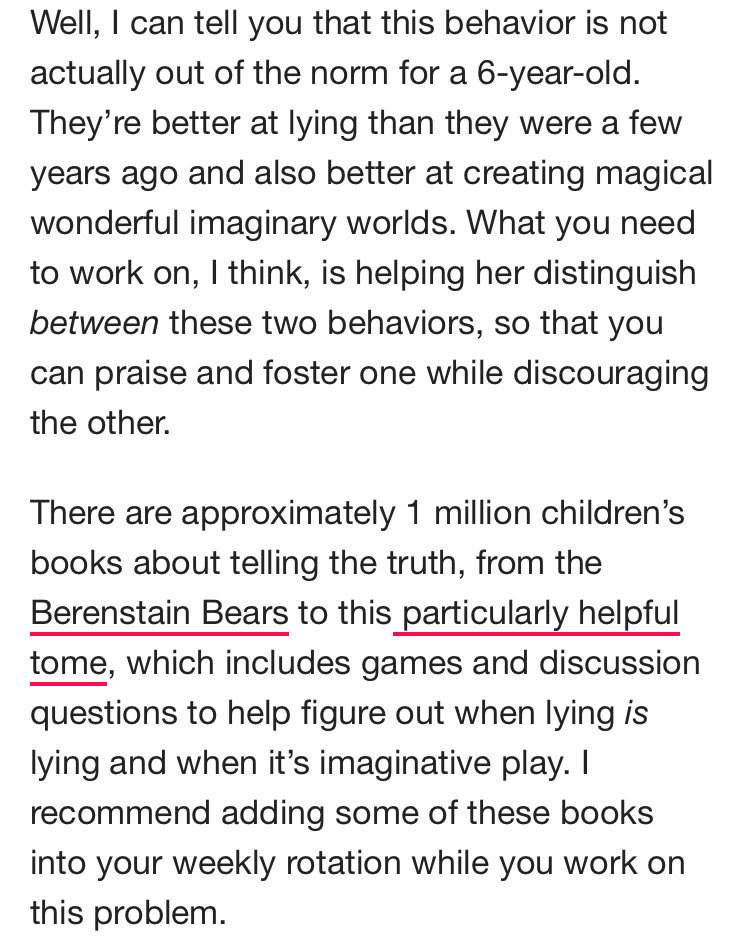
Columnist Nicole Cliffe responded that although she was sure the lying was normal for a 6-year-old, there were ways that the parent could deal with the problem head-on. "What you need to work on, I think, is helping her distinguish between (lying and telling the truth), so that you can praise and foster one while discouraging the other," she wrote.
She also recommended that the parent set boundaries and enforce punishments if the daughter tries to sneak in her fibs.
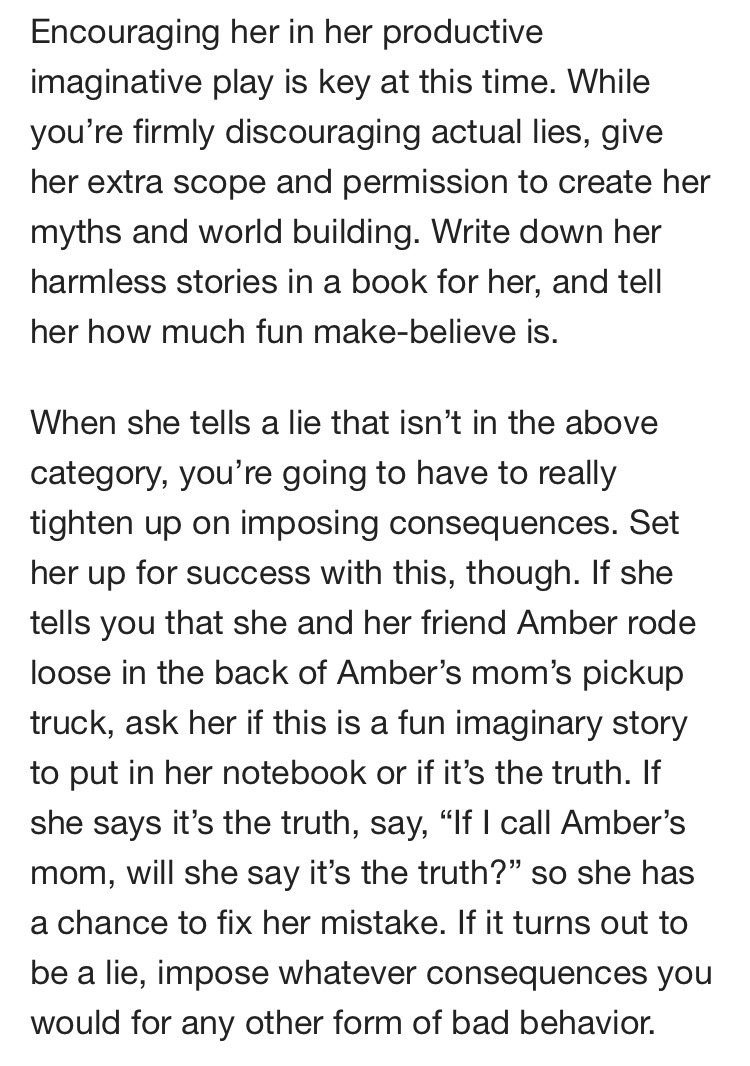
The columnist advised the parent to give the daughter a notebook for the stories she told that were clearly imaginative play and then "tighten up" if the daughter tells a lie that pushes the boundary between fib and fiction too far.
"Kids do emerge from this phase largely honest, if that’s a comfort," Cliffe added. "I think you’ve only got another year or two to navigate this, which, coincidentally, is also the year or two left where she can really immerse herself wholly in imaginative play. Keep fostering that while discouraging the other. She seems like a good kid who loves imagination and can just get a bit off track returning to real life."




